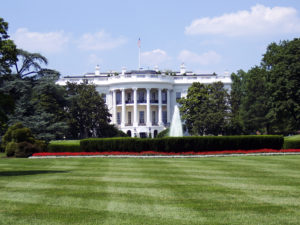Sample Compare and Contrast Essay on Democracy and Dictatorship
 There are several systems of government that we can face in the nowadays world. In this article, we will get to know how to structure a compare and contrast essay, comparing dictatorship and democracy, as the most renowned systems of government.
There are several systems of government that we can face in the nowadays world. In this article, we will get to know how to structure a compare and contrast essay, comparing dictatorship and democracy, as the most renowned systems of government.
Although there are clear differences between democracy and dictatorship on paper, recent global history has illustrated them in very clear terms. To grasp the essential differences between these two forms of government, it’s important to study the philosophical differences as well as the differences that become apparent when observing actual countries that implement these forms of government.
Essentially, a democracy is a form of government in which citizens elect representatives to govern. Technically, people don’t have the power to create, repeal, or enforce laws, but they do choose the individuals who will have that power on their behalf. Some countries are direct democracies, in which each vote is equal, and others implement voting models that weigh votes differently based on key factors like geography.
In a dictatorship, most or all of the political power is consolidated so that one individual governs the people. Dictatorships often arise after historically tumultuous periods, in which a charismatic ruler gains power via revolution or appeals to the masses.
It’s easy to identify the drawbacks of a dictatorship. When one individual has the power to govern, they can make and enforce laws that suit their own ideology, and not the ideology of the people they claim to represent. However, some people claim that allowing one person to rule ensures that government runs more smoothly and efficiently. They claim that it’s difficult to accomplish anything if the people have too much influence, simply because not all citizens of the nation agree on basic political issues. Others also point out that leaders can manipulate uneducated voters in a democracy, essentially installing a dictatorship that could not be questioned on legal grounds.
Although democracies are common throughout the world, the United States may be the most familiar example. In recent history, the fascist leadership of Adolf Hitler represents the worst consequences of a dictatorship.
It’s impossible to argue that the United States has been free of political tumult. When citizens of a geographically large country are allowed to participate in the political process, there will be significant differences of opinion that can result in a cumbersome government.
On the other hand, recent dictatorships indicate that the type of personality which is attracted to that much power is also unlikely to wield it scrupulously. Dictators often use their position to marginalize or exterminate certain ethnic groups, promote agendas which favor some citizens over others and engage in acts of aggression against other nations that don’t have the approval of the citizenry. As a result, even citizens who aren’t specifically targeted by a dictator can suffer if they’re drafted into a war they do not support. More importantly, because dictators do not earn their power through legitimate popular support, there is almost always a backlash against them. Many citizens feel that the government does not represent their interests.
At a basic, philosophical level, the differences between a democracy and dictatorship are obvious. It’s important to not merely study these differences from a theoretical perspective, though. In order to truly understand the impact they have on citizens of a country, one must study them in practice.
References:
- Antic, M. (2004). DEMOCRACY VERSUS DICTATORSHIP: THE INFLUENCE OF POLITICAL REGIME ON GDP PER CAPITA GROWTH. EKONOMSKI PREGLED
- BBC Staff. (2011). Democracy and Dictatorship: Key Differences. BBC
- Cheibub, J. (2010). Democracy and dictatorship revisited. Public Choice, Vol. 143, 67-101.
- Heichel, J. (2014). Democracy Vs. Dictatorship: Political Opposites. Udemy
- Kunal, S. (2017). Democracy Versus Dictatorship? The Political Determinants of Growth Episodes. Harvard Kennedy School
- Pande, A. (2010). Dictatorship vs. Democracy. The Huffington Post
- Schiffbauer, M. (2010). Democracy vs. dictatorship: Comparing the evolution of economic growth under two political regimes. Economics of Transition, Vol. 18, 59-90.